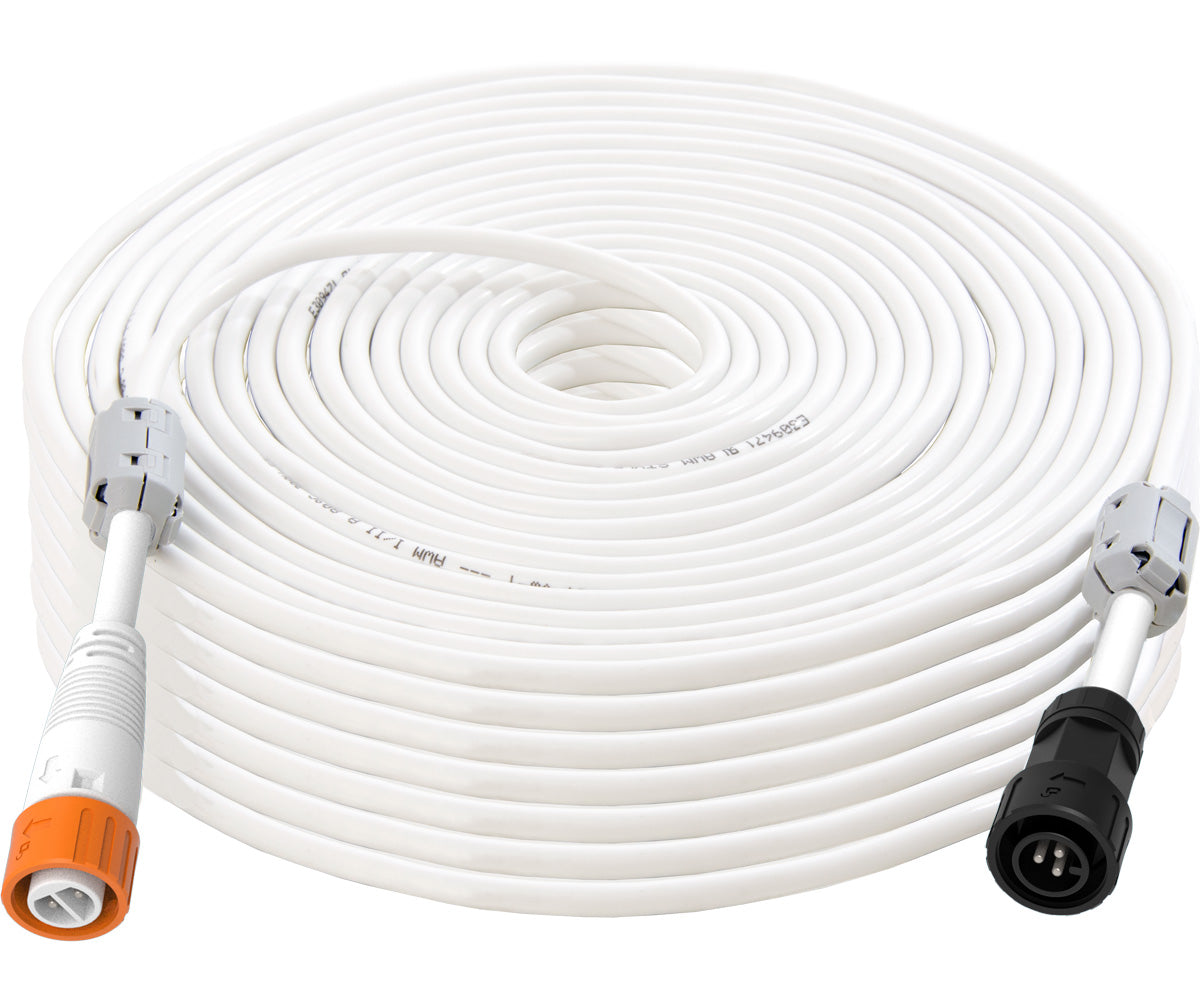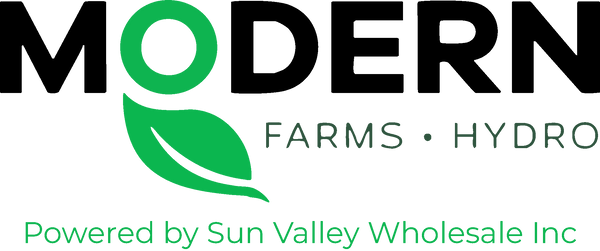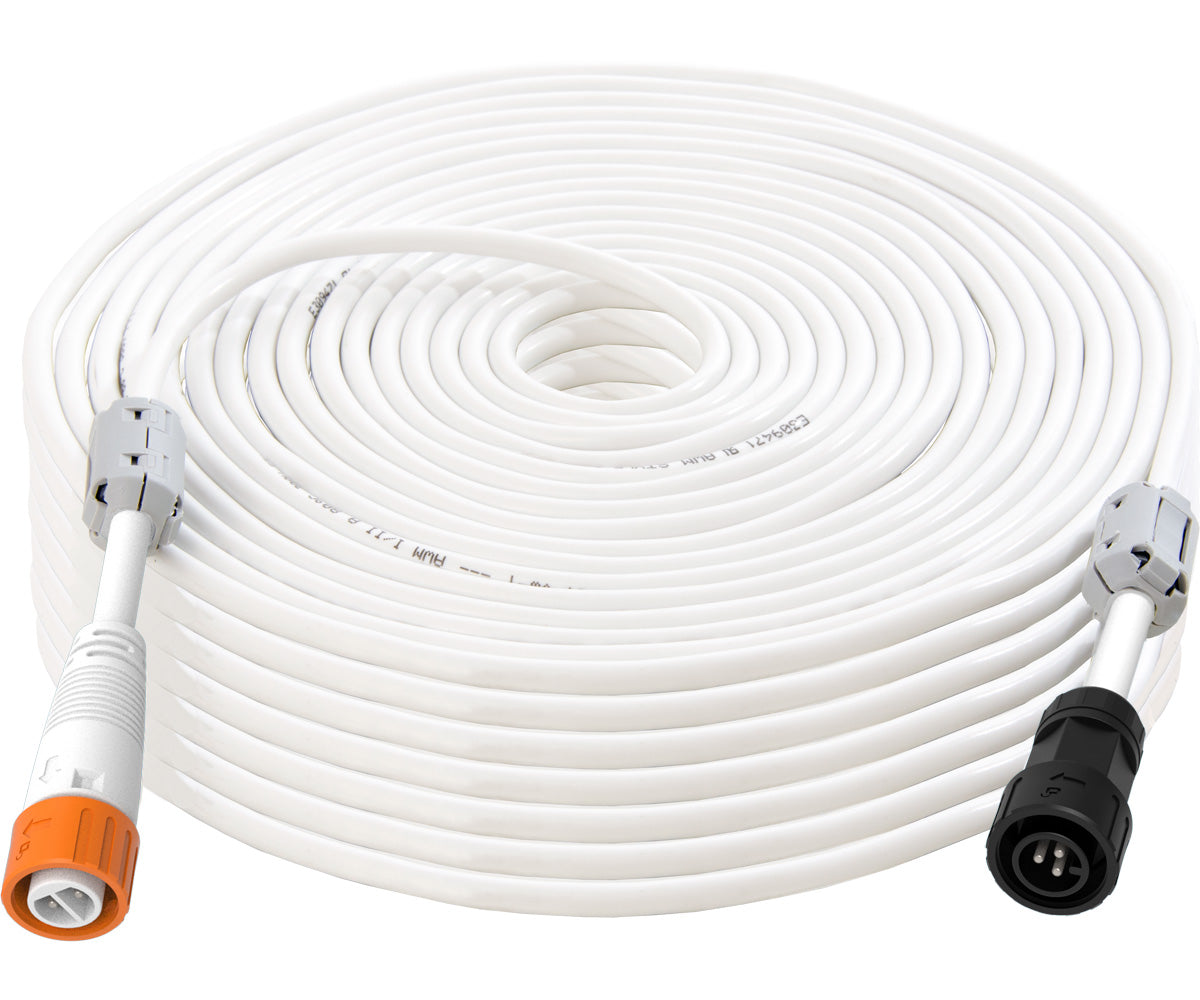PHOTOBIO
PHOTOBIO PHOTO LOC 0-10V Control Cable, 3P-2P, Ferrite, 18AWG, 300'
PHOTOBIO PHOTO LOC 0-10V Control Cable, 3P-2P, Ferrite, 18AWG, 300'
20 in stock
Couldn't load pickup availability
Payment options
- Fast Delivery
- Easy Returns
- Secure Checkout
Description
Description
The PHOTOBIO DC 0-10V Communication Tree enables multiple LED fixtures to be interconnected and controlled from a centralized location. The rugged modular system focuses on signal integrity, consistency, and reliability while offering fast, simple, and secure connections from the first fixture to the last.
Designed to excel in rigorous Indoor Farm and Greenhouse conditions, PHOTOBIO DC Communication Tree locking connections are IP67 rated providing complete dust protection and protection against temporary submersion in water.
From the centralized controller, the PHOTOBIO DC Communication Tree is fully plug and play, providing fast and secure locking connections. Straight “Trunk” lines, “Trunk with Branch” T control cables, and signal repeaters are used in combination to suit your unique needs. Hydrofarm’s grower-centric, full-service lighting design services are complimentary to ensure our partners grow! Contact Us
For use with PHOTOBIO MX, TX and T LED fixtures and is fully compatible with Autopilot PX(2+) Series Advanced Lighting Controllers.
This item, the PHOTO•LOC 0-10V Control Cable is a 300’ straight “Trunk” line used to carry DC communications signal. Designed to make the initial connection from a centralized controller and interface with PHOTO•LOC T Cables or Signal Repeaters.
Features 300’ 18AWG braided flexible copper wiring with convenient 3P-2P push lock connections, EMC suppression technology to mitigate electromagnetic interference and is UV resistant. A Signal Repeater is recommended on first fixture and every 5 fixtures following.
Cable and connections rated IP67 for enhanced water and dust protection.
Share

INFORMATION QUESTIONS
FREQUENTLY ASKED QUESTIONS
What is Hydroponics?
Hydroponics is the science of growing plants without soil. The plants thrive on the nutrient-water solution alone. The growing medium merely acts as a support for the plants and their root systems while the solution passes freely. The growing medium, if any, is totally inert.
What types of plants grow best hydroponically?
Anything can be grown hydroponically, but some plants prove to be more space efficient. Some plants we suggest are tomatoes, sweet peppers, hot chilies, lettuce, spinach, squash, cucumbers, broccoli, beans, snow peas, herbs and flowers of all types.
Can you REALLY get better yields/quicker growth?
Absolutely. The plants, when receiving everything they need, tend to be healthier, faster growing and generally more productive. You can expect 30% faster growth with many crops.
What are the watering cycle timelines hydroponic systems?
Once the reservoir is filled with nutrients, it is time to put your hydro system to work! The ease of hydroponics is automation – automation is achieved by putting the pump on a timer according to your watering needs. The watering cycle depends on growth stage, growing medium and hydroponic system. In an ebb and flow or drip system with rockwool as the medium, seedlings, clones and plants in the early vegetative stage require watering only once a day for 15-30 minutes (twice a day for higher temps). Mature, flowering and fruiting plants require a heavier feed and can be fed once a day for 30 minutes (twice a day for higher temps). Typically soiless mixes and coco fiber can be watered for about 15 minutes twice a day, and can be adjusted for heavier feeding during the flowering and fruiting stage or higher temps. ViaStone, Hydroton, Grow Rocks, and Silicate mediums need to be watered more frequently – a constant drip for drip systems, and about 15-30 minutes every 3 hours for ebb and flow systems and can be adjusted for heavier feeding during the flowering and fruiting stage or higher temps. Aeroponic systems require frequent watering cycles; 30-60 seconds every few minutes or a constant spray.
What do I need to test pH? How do I test pH?
pH has a range from 0 (acidic) – 14 (alkaline), with 7 being neutral. A proper hydroponic pH range is between 5.5 to 6.2 for most hydroponic crops. For specific crop pH, check out our Plant Guide. pH must remain within the proper range for good plant health, disease resistance, and proper nutrient uptake. pH is maintained by adding pH Up and pH Down to the nutrient solution. For more information, see the Testssection of our site.
How will the flavor compare to my outdoor grown, organic produce?
The taste may be even better! This is simply due to the fact that the hydroponically grown plants are getting everything they need, when they need it. Don’t be fooled by “hot house” produce grown commercially. The grower’s primary concern is shipability and storage, not flavor. When you grow your own vegetables at home, you can expect nothing less than excellent results. Plus, hydroponically grown produce has the added benefit of a longer shelf life.

